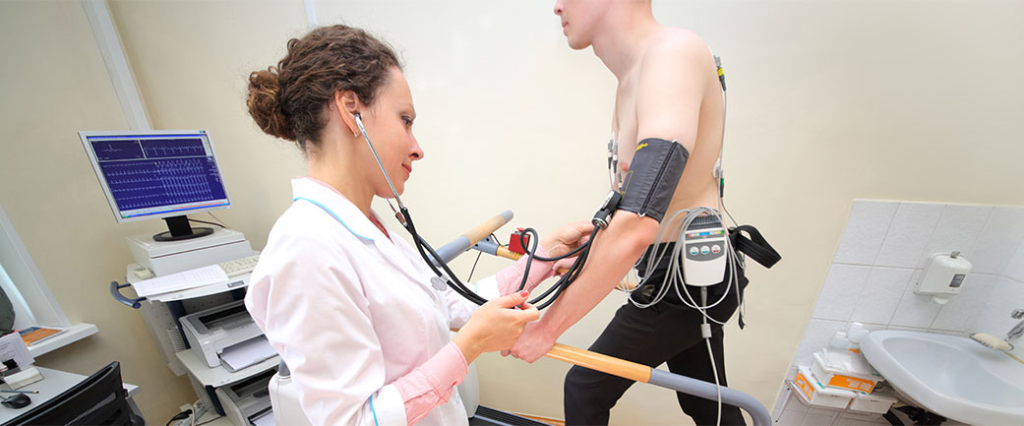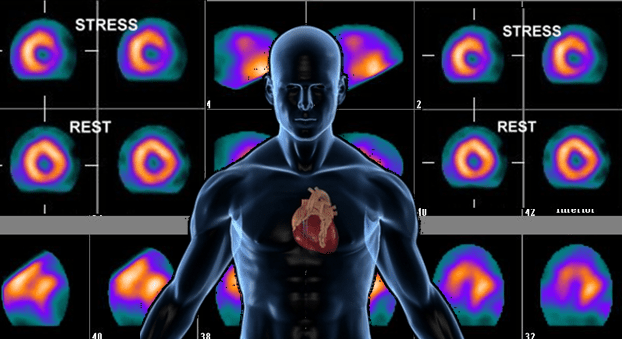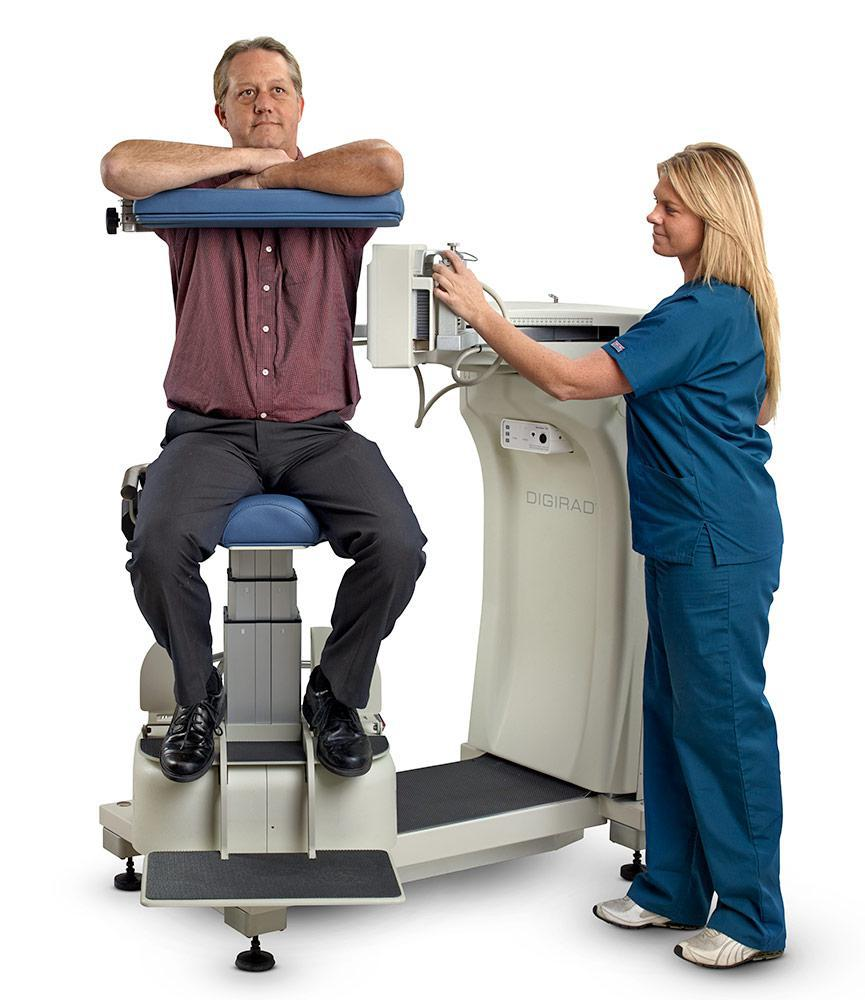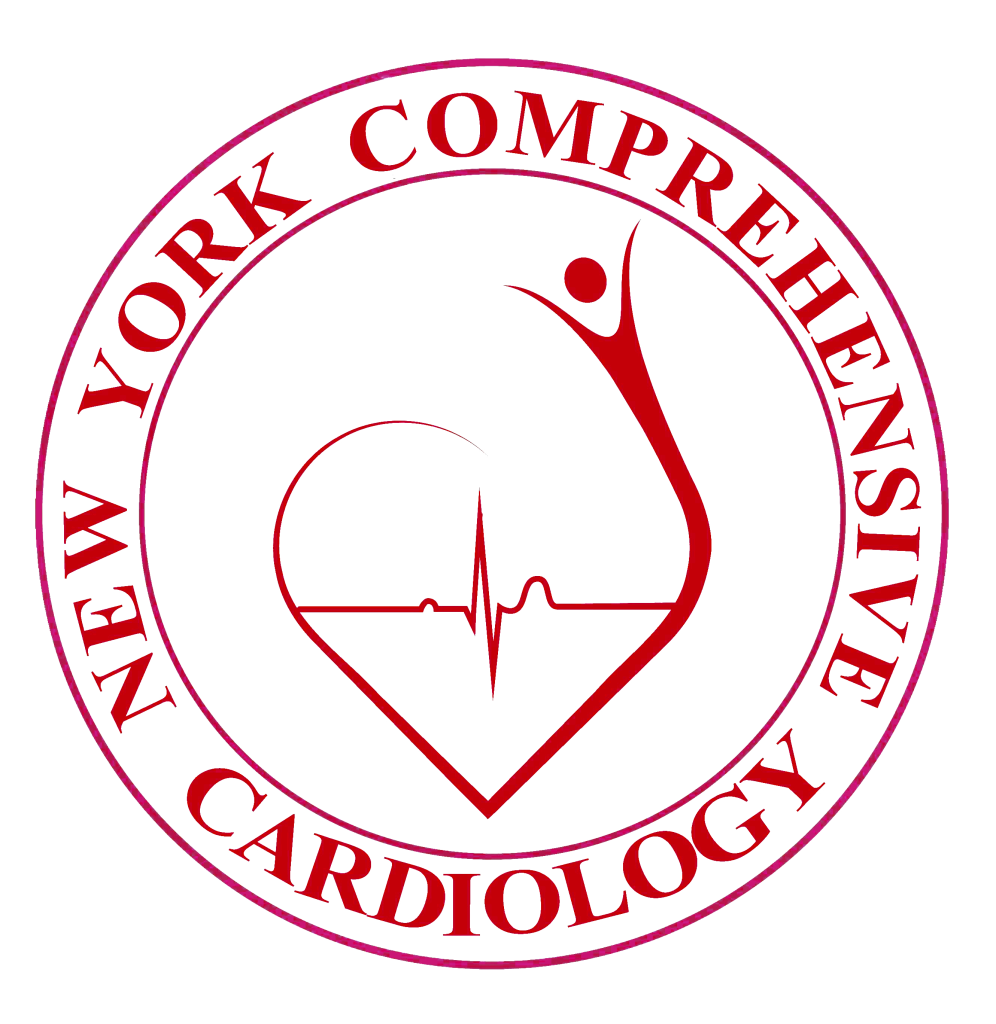Exercise Stress Test: This test is done to evaluate the heart’s capacity to support activity. During this test, the patient walks on a specialized treadmill. While undergoing activity, a continuous EKG recording of how the heart responds to physical exertion is produced. Blood pressure and heart rate are also recorded over the duration of the stress test.
Exercise & Nuclear Stress Tests

Stress Echocardiogram Test: An echocardiogram uses high frequency sound waves (ultrasound) to examine the heart’s anatomy and functional capacity. A treadmill stress test evaluates your heart’s response to physical activity through the monitoring of your heart rate, heart rhythm pattern, blood pressure, and functioning when challenged by exertion. When the two tests are combined, an assessment can be made of the status of your heart at rest, as well as during and immediately following stress. This can indicate whether or not there are significant blockages in the heart’s arteries. It is also useful for evaluating how well the heart is recovering following a major cardiac event such as a heart attack as well as evaluating the effect of exercise on heart valve function.

Nuclear Stress Test: Persons with chest pain or other symptoms of heart disease may be developing atheroschlerosis of the coronary arteries, the blood vessels that supply oxygen to the heart. The nuclear stress test is done to check the coronary arteries for potential blockages. For this test, a small dose of radioisotope is injected that enables us to gather detailed imaging of the heart and its functional capacity. The “stress” part of the test can either be induced by walking on the treadmill or, if one is not able to walk, through the use of medication. NYCC’s nuclear stress testing facility is accredited by the American College of Radiology (ACR). We utilize a state-of-the-art sitting-up camera that allows for more in depth results as well as a more comfortable patient experience.


